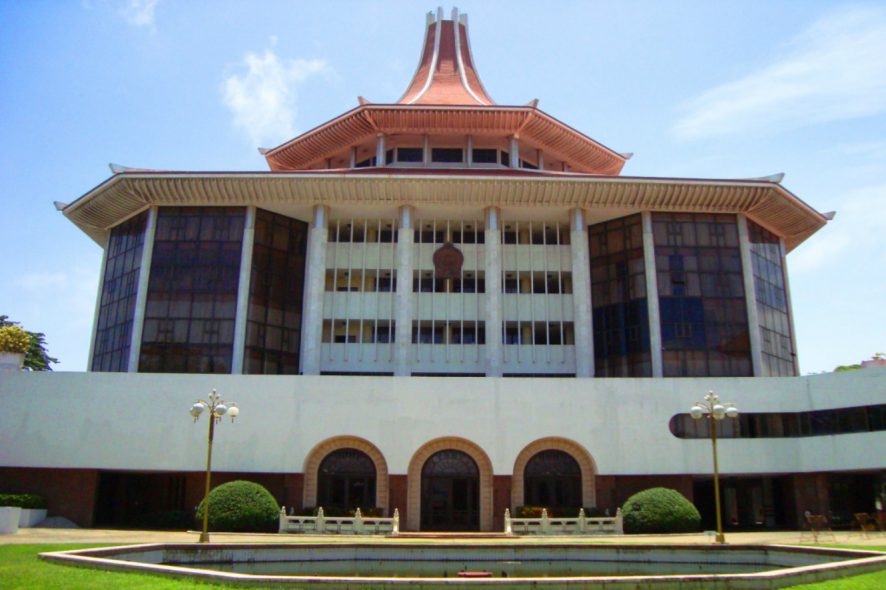Court of Appeal of the Democratic Socialist Republic of Sri Lanka: The Division Bench of Janak De Silva and N. Bandula Karunarathna, JJ., partly allowed an appeal which was sought In the matter of an application for orders in the nature of a writ of Certiorari and Mandamus under and in terms of the provisions of Article 140 of the Constitution.
The Petitioner was a company limited by guarantee and a non-profit organization with objectives of environmental justice and good governance in the interests of the general public. In the instant PIL, it sought to impugn several acts of the Respondents in the forest complex adjoining Wilpattu National Park.
The counsel for the petitioner, Mr Ravindranath Dabare with S. Ponnamperuma submitted that these areas had been declared as reserved forests in terms of section 3 of the Forest Conservation Ordinance as amended (Forest Conservation Ordinance) and that around 1500 families had been illegally settled in this area contrary to law. The counsel for the respondents, Mr Manohara Jayasinghe SSC in their statement of objections filed that the land forming the subject matter of this application was cleared and several houses and roads had been constructed in order to settle the internally displaced persons (IDP) who were ordered to leave the Northern Province in October 1990 by the Liberation Tigers of Tamil Eelam. The Respondents further stated that the Lessons Learnt and Reconciliation Commission (LLRC) had recommended in its Report that the Government take steps to resettle IDPs and that the Government should access all possible sources of assistance from institutions and individuals both national and international. The evidence before Court established that vast extent of reserved forest land had been cleared and used for the resettlement of IDPs in breach of the provisions of the Forest Conservation Ordinance. The respondents contended that the land forming the subject matter of this application has been used for re-settlement in terms of decisions made by the Presidential Task Force for Resettlement, Development and Security (Northern Province) (1R2) and the Committee appointed by the Task Force to make recommendations to resolve land-related issues in Muslim Villages Displaced in 1990 (1R2 and 1R3). However, there was no documentary evidence before the Court to substantiate this assertion. The Court concluded that the resettlement of the IDPs was made in violation of the provisions of the Forest Conservation Ordinance. The question was of the relief that Court would grant in this application.
The Court observed that relief sought in terms of the writ of certiorari could not be granted as necessary parties had not been made Respondents to this application. It is trite law that all those who would be affected by the outcome of the application for writ of certiorari should be made respondents. The relief sought in terms of a writ of mandamus also failed for the same reasons as the rule of necessary parties applied to this remedy as well. In this application the Court exercised the jurisdiction conferred upon it by Article 140 of the Constitution and the Supreme Court has held that this jurisdiction was not limited to the issuing of prerogative writs such as writs of certiorari, prohibition and mandamus etc, therefore the remaining relief for an order in the nature of mandamus ordering the 1st Respondent to take action against the illegal removal of forest cover, and illegal re-settlement done by the encroachers and re-instate the forest lands to the forest reserve and organize forest replanting programme under and in terms of the provisions of the Forest Ordinance No. 16 of 1907 as amended is one that this Court was permitted to issue.
The Court observed that the Petitioner in this case was not a party to that application. Hence the doctrines of res judicata or issue estoppel do not apply as in both instances it is necessary that the parties to the two cases and the cause of action (or issue estoppel as in this case) must be the same for the two doctrines to apply. The Court further observed that in any event, it was trite law that the rights of the parties must be decided as at the date of the institution of the proceedings or action [Ponnammah v. Arumugam, (8 N.L.R. 223), Sithy Makeena v. Kuraisha, (2006) 2 Sri. L.R. 341]. This application was filed and notice issued in 2015 whereas the fundamental rights application S.C.F.R. 130/2017 was filed in 2017. Hence the outcome of the fundamental rights application cannot be held against the Petitioner in this application.
The Court specifically mentioned the cases of the Supreme Court of India where it has recognized the power vested in the High Court in moulding remedies in the exercise of the writ jurisdiction vested in it by Article 226 of the Indian Constitution to do substantial justice between the parties [C.M. Singh v. H.P. Krishi Vishva Vidyalaya, (1999) 9 SCC 40] and, that an application should not be thrown out simply on the ground that the proper writ or direction has not been prayed for [Chiranjit Lal v. Union of India, AIR 1951 SC 41]. It is open to the Court to mould the relief and to grant the consequential or ancillary relief so as to restore the position to what it was before the impugned action was taken by the concerned authority [State of Gujarat v. Consumer Education and Research Centre, 1981 SCC OnLine Guj 66].
The Court interpreted the Polluter Pays Principle and while partly allowing the appeal held that there was a need to settle down all IDPs who were displaced due to the war in Sri Lanka as far as possible in the areas where they were residing. However, this was subject to other overriding concerns and above all the respect for the rule of law which is the foundation of our Constitution.[Centre for Environmental Justice (Guarantee) Ltd. v. Anura Satharasinghe, 2020 SCC OnLine SL CA 5, decided on 16-11-2020]
Suchita Shukla, Editorial Assistant has put this story together







